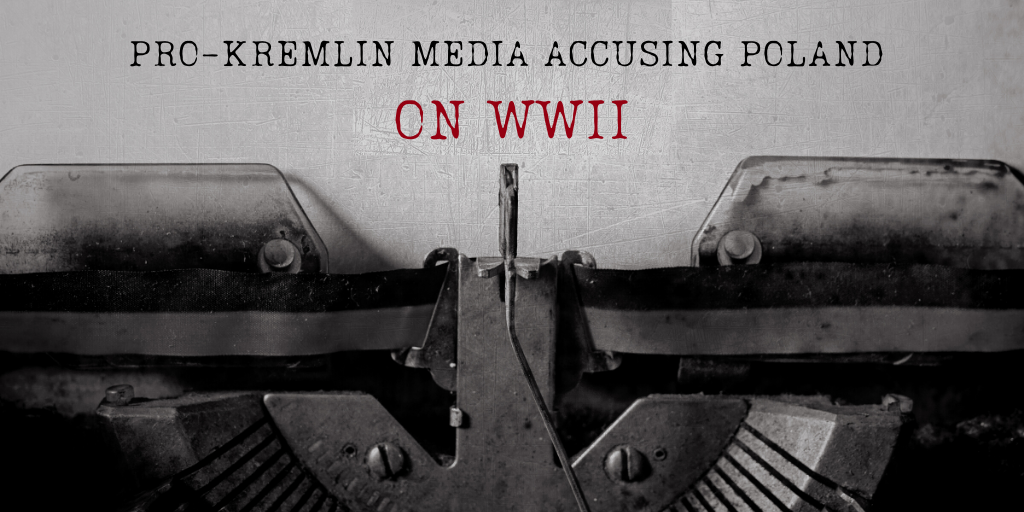As the target of more than 15 cases this week, Poland is still in the cross-hairs of pro-Kremlin disinformation.
The first indication of this trend came in late December when President Putin described the Kremlin’s worldview during his annual press conference.
On January 17th, the very day of the Soviet Army’s capture of Warsaw 75 years ago, the Russian Ministry of Defence publicized “secret documents” claiming that the Warsaw uprising was ill-prepared and that an intervention from Soviet troops was just not possible.
And with the anniversary of the Soviet Army reaching Auschwitz on 27 January 1945 also approaching, many cases of pro-Kremlin disinformation included claims about Polish anti-Semitism.
But there was also quite a strong backlash to the Kremlin ignoring facts and creating its own, “The Red Army stared on idly at the agony of Warsaw. The city’s two uprisings — the first in the Jewish ghetto in 1943, the second in the entire city in 1944 — were evidence of the ruthlessness of German crimes. But while the people of Warsaw waited hopefully for help, Joseph
Stalin never ordered the Red Army to intervene,” wrote the prime minister of Poland Mateusz Morawiecki.
As for “liberation” and “Sovietization”, there is a fine line: while it is true that the end of the occupation of Nazi Germany was experienced by many as liberation, the arrival of Soviet troops was the beginning of a new occupation. This Sovietization of Poland and the rest of the Eastern Bloc was achieved with terror, mass repressions, nationalization of industry, expropriation of privately owned land, environmental disasters, destruction of the market economy and restrictions of civil and political freedoms.

In an attempt to cover up these inconvenient facts, pro-Kremlin outlets try their best to dominate the media sphere with narratives that fit the Kremlin’s worldview. One of those is the claim that the USSR had absolutely no part
in creating the preconditions that allowed Nazi Germany to start the war.
Playing on the card of ungratefulness, the pro-Kremlin media also claim that the USSR not only liberated Poland but also helped to rebuild the country.
Another example of vilifying Poland is the accusation of being a Nazi ally and partner. While this narrative contradicts historical documents, it is still used to erode the historical significance of the Ribbentrop-Molotov Pact and thus show the USSR in a better light.
The pro-Kremlin media also accuse Poland of not wanting to condemn anti-Semitism and having their own vision on the Holocaust. While Poles actually share the view of professional historians, the Kremlin also claims that the pre-war Polish government created fertile ground for the Holocaust
.
For heavy consumers of disinformation, it’s clear that the historical narratives fit perfectly into the system of disinformation used nowadays. In other words, the main idea has been and still is to show that Russia is not guilty, but others sure are. But if one really is innocent, why try to prove it for 75 years, over and over again? And if indeed so innocent, why care to claim that the European Day of Remembrance for the victims of all totalitarian and authoritarian regimes is a false holiday?

Further reading:
- Kremlin propagandist doubting the religion of denial
- Pro-Kremlin media attempts to make fascism politically correct
- Tehran’s confession of downing PS752 is unlikely to inspire Kremlin to admit its guilt on MH17
- Disinformation review: twenty years of distorting the media
- Ten embarrassing moments in Russian disinformation of 2019
- EU vs Disinfo: Data analysis and disinformation from insight to action in…
- Pro-Kremlin TV shows got 26 million views on Youtube in 2019
- 2019: The Russian disinformation roller coaster





